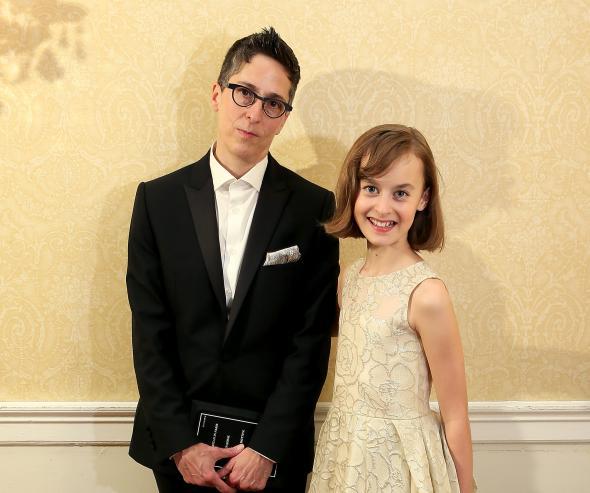Earlier this week, we learned that a group of college freshmen are refusing to read Fun Home, Alison Bechdel’s memoir about her father, because the book is dirty and has boobies in it. Now one of the complainers, Brian Grasso, has an op-ed in the Washington Post in which he explains that his refusal to do his homework has more complicated moral—biblical!—underpinnings.
“The book includes cartoon drawings of a woman masturbating and multiple women engaging in oral sex,” he writes. “If the book explored the same themes without sexual images or erotic language, I would have read it. But viewing pictures of sexual acts, regardless of the genders of the people involved, conflict with the inherent sacredness of sex.”
Right, because the book is dirty and has boobies in it.
This op-ed raises a number of important questions, starting with how Grasso knew the book had boobie pictures without looking at the boobie pictures, since Fun Home doesn’t exactly advertise “Hot Lesbian Sex Scenes!” on the cover. But here’s what’s really confusing: I was told by a huge cover story in the Atlantic this month that it’s liberals who are ruining academic freedom on campus. The real censorship, I was told, is to warn students about violent or explicit material that you then expect them to read anyway. Free speech is under assault, I was informed, because student unions decline to pay for the comedy stylings of Dennis Miller or goofy novelty song acts. But nobody mentioned the students who are literally refusing to read books because the Bible told them not to.
Are there liberals and feminists who go overboard and demand censorship? Yes, that is a thing that has happened, and we should push back against it. But this incident is a reminder that the majority of threats to education and academic freedom come from the right, from the attempts to suppress science education to “abstinence-only” programs to attacks on schools teaching kids about the Black Lives Matter movement.
Fun Home is not a pornographic book. It’s a shame that Grasso and his fellow conservative Christian students objectify women’s bodies to the point where they think all nudity equals porn. The sex scenes in Fun Home portray, in a secular way, what one might call “the inherent sacredness of sex.” Bechdel’s youthful sexual encounters are seen as life-affirming and full of joy—the kind of joy she fears her repressed father never had the chance to experience. Grasso may see all female nudity as nothing more than “titillating content.” If so, that’s all the more reason for him to read Bechdel’s book and consider the possibility that sex—complete with nudity!—can be about intimacy and human connection and so much more. But first he needs to chill out and do his homework.
